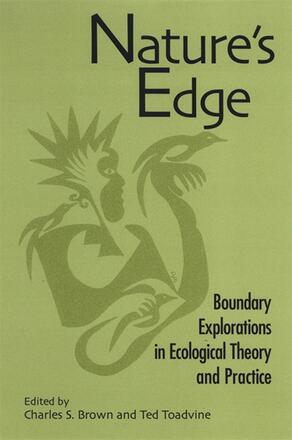
Nature's Edge
Boundary Explorations in Ecological Theory and Practice
Alternative formats available from:
Leading environmental thinkers investigate the complexities of boundary formation and negotiation at the heart of environmental problems.
Description
Nature's Edge brings together leading environmental thinkers from the natural sciences, geography, political science, religion, and philosophy to explore the complex facets of boundary formation and negotiation at the heart of our environmental problems. The contributors provide a fresh look at how our lives depend on the lines drawn and ask how those lines must be reinscribed, blurred, or even erased to prepare for a sustainable future.
Resolving environmental problems calls for the negotiation of multiple, intersecting boundaries—natural, social, political, geographical, and ethical. From the differentiation of species to the formation of communities and moral values, environmental theorists are constantly confronted with a palimpsest of thresholds and mappings: Can nature and culture be divided? Are natural divisions discovered or created? How do political borders and moral economies shape community-building and social transformation?
Charles S. Brown is Professor of Philosophy at Emporia State University. Ted Toadvine is Assistant Professor of Philosophy and Environmental Studies at the University of Oregon. Brown and Toadvine are the coeditors of Eco-Phenomenology: Back to the Earth Itself, also published by SUNY Press.
Reviews
"A total of thirteen chapters, written by scholars and practitioners with vastly varying backgrounds, prefaced by a comprehensive and compelling introduction by Brown, the text as a whole amounts to a broad and deep meditation on borderlines in nature, society, and thought itself." — Environmental Ethics
"The writing … offers relevant insight into the complications involved in either including or separating humans from Nature … successfully bridges the gap between disciplines while addressing contemporary concerns." — The Kelvingrove Review
"The ideas focused on in this book have received attention at the edges of many fields, but little sustained, multidisciplinary treatment as a field of its own. Because of the variety of disciplines represented here, you may be attracted to one topic, but find yourself delighted to remain for the rest." — W. S. K. Cameron, coeditor of Environmental Philosophy